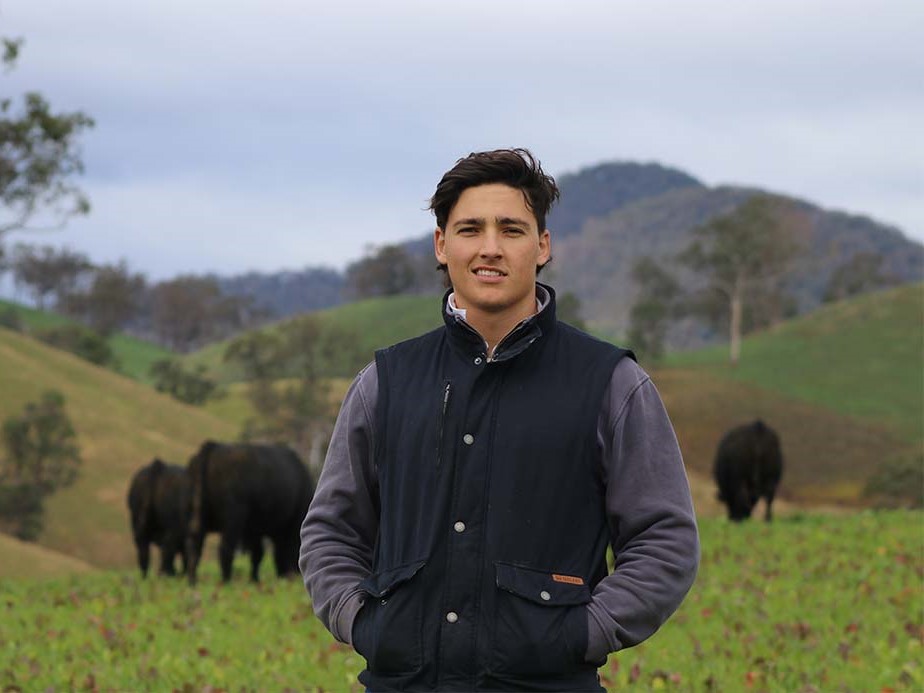Supported by Future Food Systems, University of New England PhD student Angus Dingley is exploring how temperature extremes affect pollination in polytunnel-cultivated raspberry plants. The goal is to help growers mitigate the negative impacts of warmer climes on fruit quantity and quality.
“Until recently, Australian raspberries have been a short-season ‘summer’ berry, due to their confined growing regions and limited shelf-life,” Angus explains.
Australia’s berry industry has made a concerted effort to expand the market window for raspberries, introducing new products such as flash-frozen raspberries, and establishing new varieties that have more flexible temperature requirements and longer growing and fruiting seasons.
“Gladly, we now see raspberries on the supermarket shelves throughout the year, and market statistics suggest heightened demand as prices come down due to better availability,” he adds.
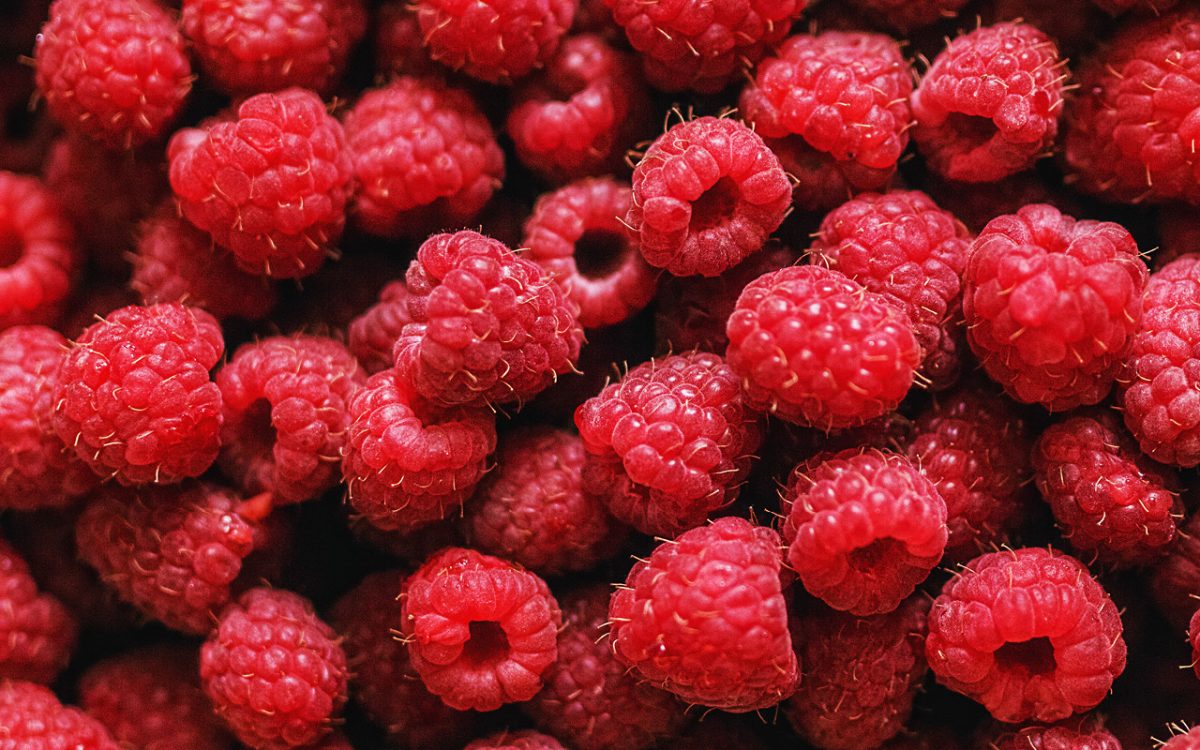
The goal is more and better fresh raspberries for Australian consumers. Angus’s doctoral research at University of New England is contributing to a Future Food Systems-backed project aimed at improving pollination in polytunnel-cultivated raspberries. Credit: Shutterstock
All these factors have encouraged growers in warmer regions of Australia – such as Coffs Harbour – to add raspberries to their planting regimes. However, raspberry plants grown in these regions are more likely to be exposed to temperature extremes – often being subjected to days with thermometer readings above 30°C, Mr Dingley notes
“Growers have found that these extremes can impact the quality of the resulting fruit, primarily by affecting the pollination process,” Angus says. “As part of my PhD research at UNE, I am investigating the consequences of temperature extremes to raspberry pollination under polytunnel cultivation.
“I hope to discover ways in which pollen ovules and their interactions are impacted so that I may be able to suggest actionable mitigating techniques – techniques that could be used by growers to improve yields in the event of unfavourable conditions.
“I am fortunate to be partnered with Associate Professor Romina Rader, Professor Daniel Tan and Professor Andrew Robson on this project, which will give me the greatest opportunity to be successful in helping the industry tackle one of its pre-eminent problems.”
Read more about Angus’s PhD project here.
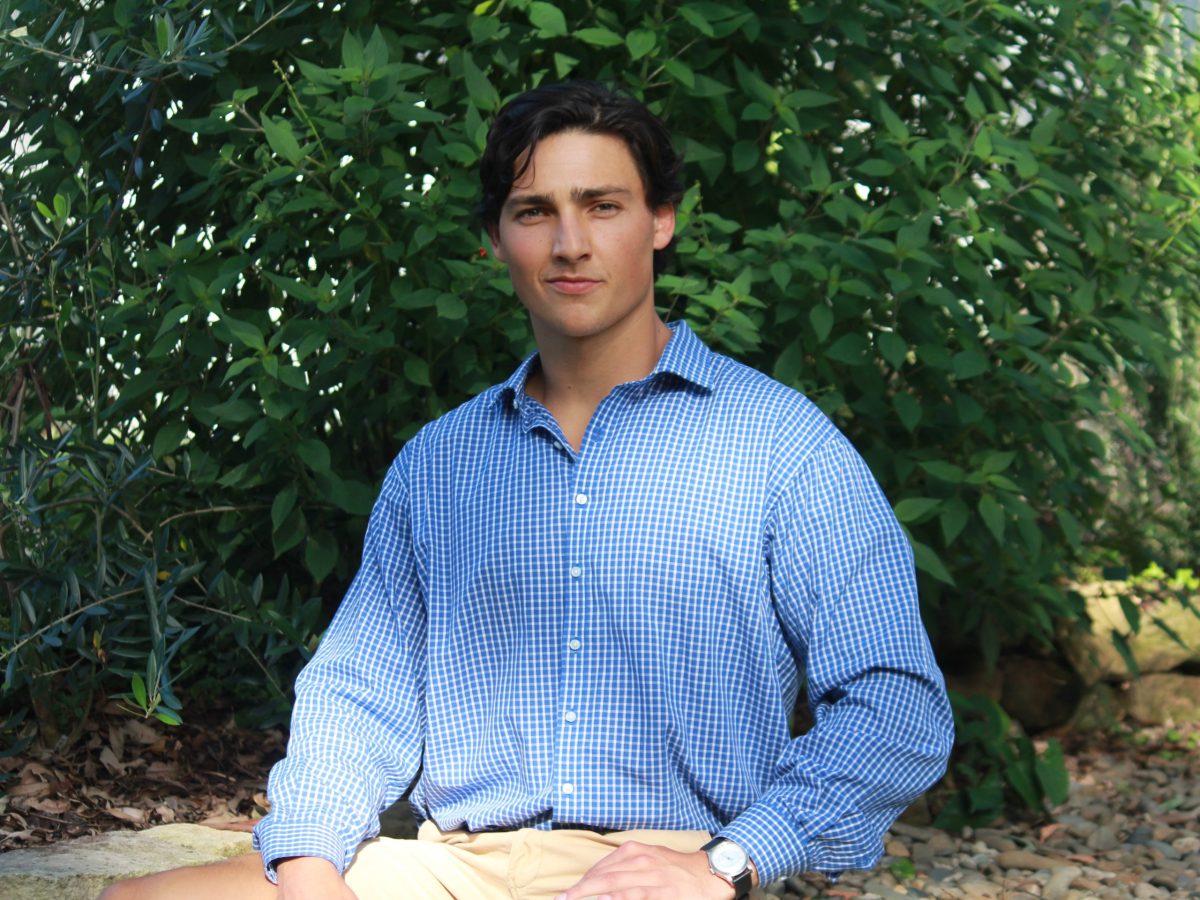
Angus Dingley, now a PhD student at UNE, discovered he had a flair for science in Year 12. Image courtesy of Gregor Dingley
From pavement to paddock: Pursuing a passion for agriculture
When Angus was in Year 12, he knew a career in science was on the cards, but exactly what discipline he wanted to explore was something he still needed to figure out.
A Sydney local with no experience on the land, he made an unexpected choice. “I enrolled in a Bachelor of Rural Science at UNE on a whim without really knowing what it entailed,” he says.
“Luckily, I ended up taking to agriculture like a duck to water and just fell in love with it. It put those foundational disciplines such as maths, biology and chemistry into practice, which was really exciting.”
Swapping the concrete of the city for the paddocks of the New England, he began to settle into his new life at St Albert’s College.
“I really loved college, it was all so new getting to live with friends, and it was so convenient being close to lectures and classes,” he says. “All of my mates in Sydney had really negative experiences with university and they were so disconnected from the people doing their course, whereas I could name all the people who did Rural Science in my year – I knew them all because I saw them every day.”
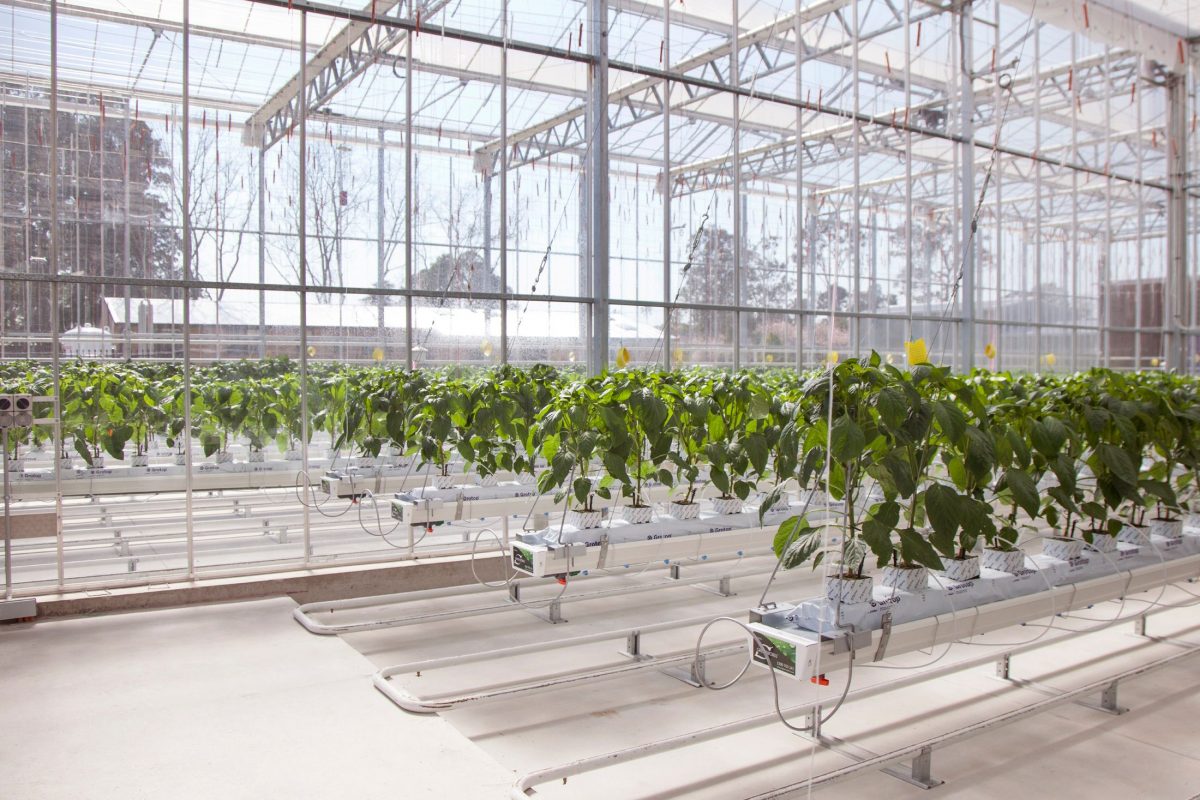
Inside the state-of-the-art, semi-automated experimental glasshouse facility at Western Sydney Univerrsity’s National Vegetable Protected Cropping Centre. Credit: Western Sydney University
Control factor: The appeal of protected cropping
By third year, Angus was immersing himself in work experience and was eager to get a taste of everything the agricultural sciences had to offer. After stints working on cotton farms, vegetable farms, and beef enterprises, he found his calling in protected cropping.
“I ended up doing four weeks in a tomato greenhouse, and I loved how there was greater control over the growing process, which enabled the delivery of consistent, quality produce,” he says.
“Because you’re growing things inside, you can control how much moisture you give them, what the temperature is, and you’re excluding a lot of the pest and diseases. The scientist in me really enjoys the capacity to measure and quantify the whole growing process.
“I’m glad I didn’t rush into anything because I don’t think there’s anything wrong with taking your time and exploring your options.”

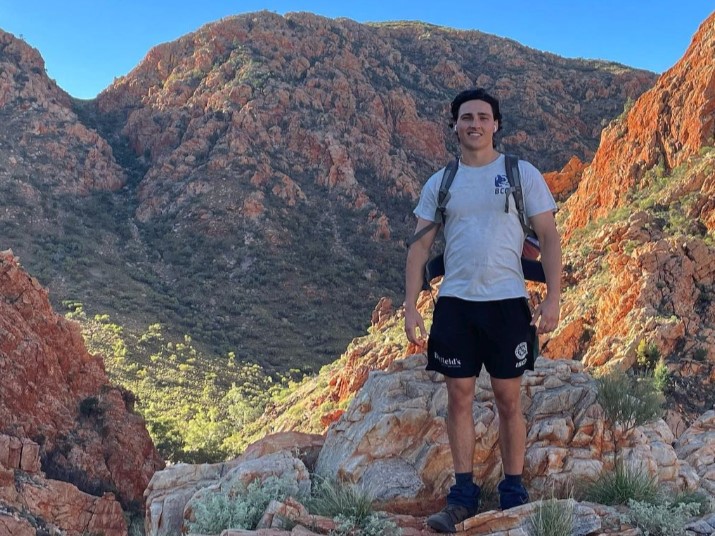
When he’s not poring over plants or testing out new, bee-free ways to pollinate indoor-grown crops, Angus loves exploring the great outdoors. Image courtesy of Angus Dingley
No need for bees: Is acoustic pollination viable?
At the end of 2022, Angus completed his final year, graduating with First Class Honours for a thesis looking into the acoustic pollination of tomato crops, which he undertook with Future Food Systems at Western Sydney University’s National Vegetable Protected Cropping Centre, part of the university’s Hawkesbury campus.
“The bumblebee is the most effective commercial pollinator of tomatoes; however, it’s a banned species here in Australia,” he says.
“This means we have to artificially pollinate commercial tomato crops by manually shaking the flower to recreate the movement that a bumblebee would naturally make. Presently, this is a costly and labour-intensive process. What my project was looking at was whether we could simulate the sound that’s made by a bumblebee’s vibrations to see if that could pollinate the crop in isolation of the mechanical vibration.”
While the final data is yet to be released, Angus’s literature review was published in the MDPI journal Agronomy last year. It was the first piece of research from the project to be made available. His research into acoustic pollination also gained him for the opportunity to present at the prestigious Ag Institute Australia Chris Russell Medal of Excellence, which recognises some of NSW’s brightest undergraduate researchers.
Angus’s plans to continue his work in horticulture saw him embark on a PhD at University of New England working on a second FFS project just months after graduation. Asked by UNE Media if he wished he’d found his niche sooner, Angus says he’s happy he took the time to figure out what he truly wanted to do.
“I’m glad I didn’t confine my interests too early because I don’t think there’s anything wrong with taking time to let serendipity help in exploring your options,” he says.
“Sometimes young people think they need to rush everything, but I think that idea is misconceived. Time will pass anyways, so do things that you enjoy, and your passion will eventually find you.”
Source material: “Your passion will eventually find you” I UNE Media, June 2023
Lead image: PhD student Angus Dingley, outstanding in the field. As part of his undergraduate studies, Angus was engaged on the Future Food Systems-backed ‘Acoustic pollination’ project at Western Sydney University; now he’s undertaking doctoral studies at University of New England, supported by FFS, in which he is exploring the impact of temperature extremes on raspberries grown in polytunnels in warmer regions of Australia. Credit: University of New England, courtesy of UNE Media/Angus Dingley


